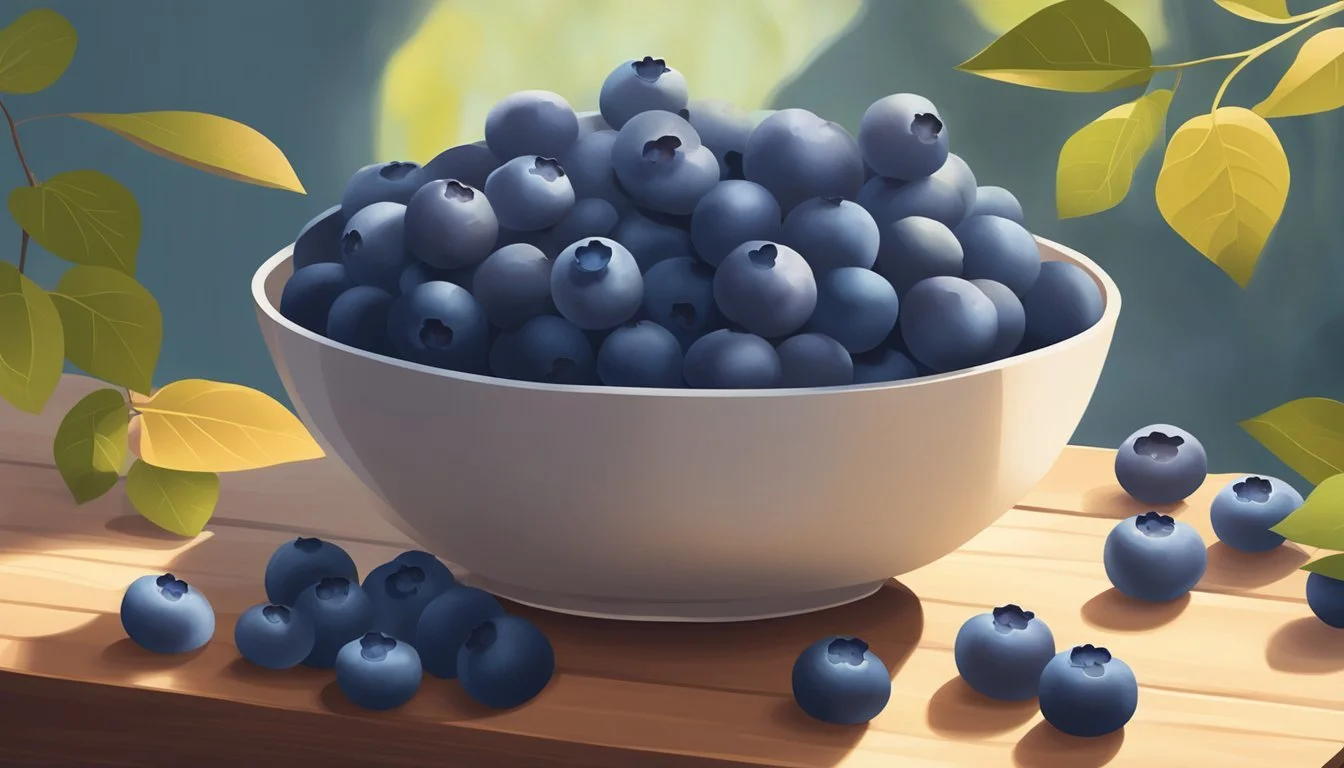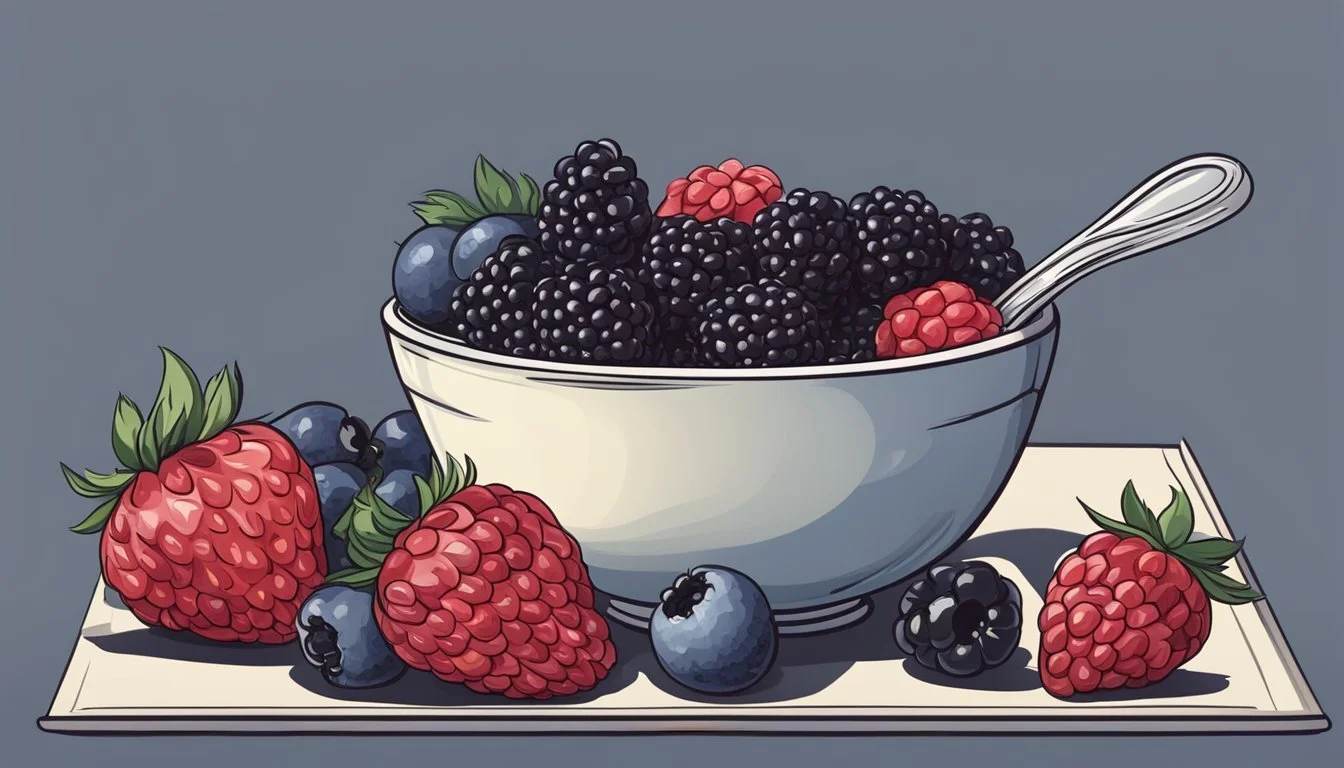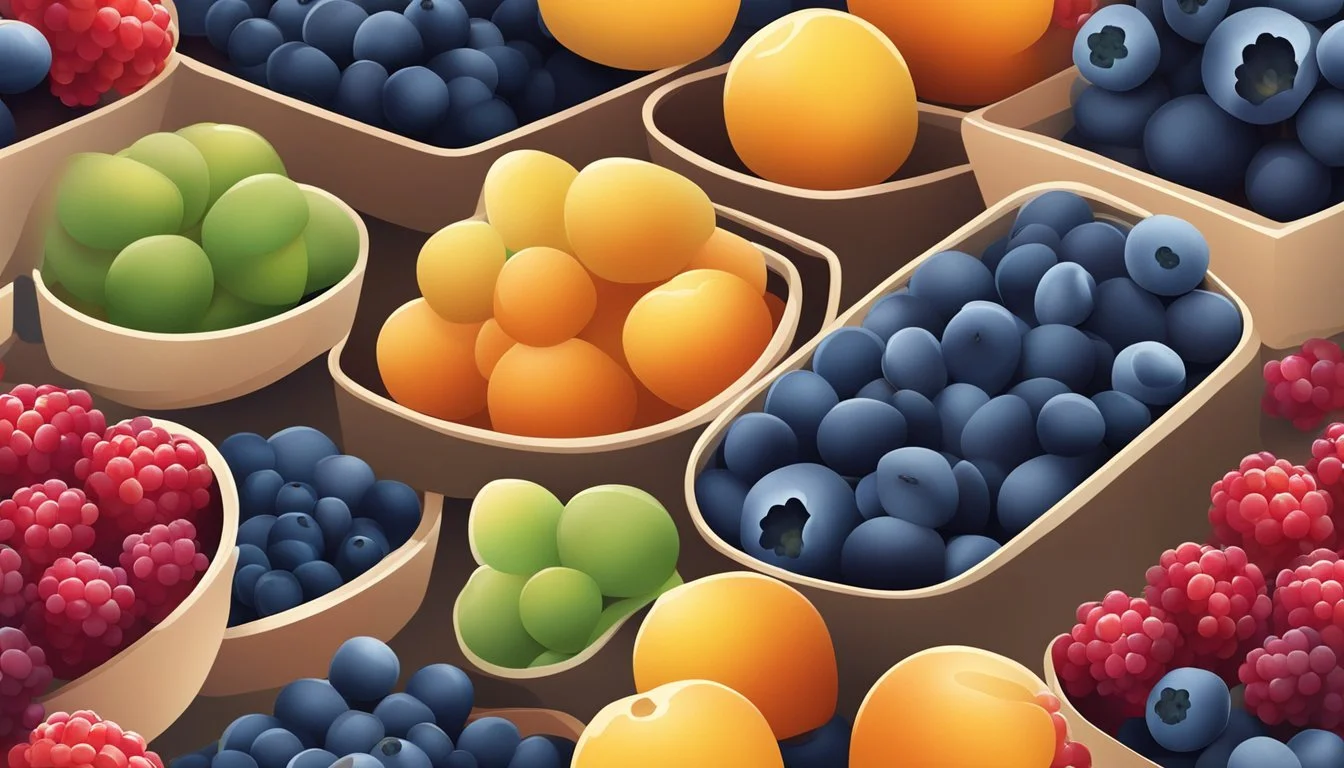Blueberries Substitutes
Top Alternatives for Your Recipes
Blueberries are a popular fruit known for their sweet flavor and high nutrient content. They have become a staple in various culinary applications, from baking to smoothies. However, there are times when blueberries may not be available, either due to seasonal variations or personal preference. In such cases, finding a suitable substitute that maintains the integrity of the original recipe is vital. The ideal replacement will offer a similar taste, texture, and color to ensure that the final dish is as close to the intended outcome as possible.
Several fruits can serve as effective substitutes for blueberries. Berries such as strawberries, raspberries, blackberries, and huckleberries are excellent alternatives, providing flavors that complement most recipes calling for blueberries. These berries can be chopped or used whole and are often available fresh, frozen, or dried, allowing for versatility in the kitchen. When selecting an alternative, it's important to consider the dish's desired sweetness, texture, and appearance to achieve the best match.
Understanding Blueberries
In an exploration of blueberries, it is essential to understand their nutritional and flavor profiles, which contribute to their superfood status. They are not only valued for their taste but also for their significant health benefits.
Nutritional Profile
Blueberries are a powerhouse of nutrition, often labeled as a superfood. They are rich in antioxidants, including anthocyanins, which give them their characteristic blue hue and help in combating oxidative stress. Here is a concise table showcasing their nutritional components per 1 cup (148 grams):
Nutrient Amount Calories 84 Fiber 3.6g Vitamin C 14.4mg Manganese 0.5mg Vitamins Various
They are also a good source of vitamins K and B6, and provide modest amounts of other essential nutrients.
Flavor Profile
Blueberries boast a distinctive flavor that is both sweet and tangy. They have a pleasant balance that can sweeten a dish while also adding a slight tartness. This flavor profile is versatile and pairs well with a range of other ingredients, making blueberries a favored fruit in various culinary applications. Whether eaten fresh, cooked, or as part of a dish, the nuanced flavor of blueberries is unmistakable and sought after.
Blueberry Substitutes in Cooking
When cooking or baking, one might sometimes need to replace blueberries due to availability or personal preference. This section outlines the variety of alternatives that can be used in different culinary contexts, such as when preparing baked goods, fresh dishes, or flavoring.
Baking Alternatives
For muffins, pies, scones, and cobblers, the best blueberry substitutes maintain similar moisture content and burst of sweetness.
Blackberries: Share a similar sweetness and are juicy, making them excellent in baked goods.
Huckleberries: Hold their shape and provide a comparable berry flavor.
Raspberries: Bring a tart contrast to recipes.
Acai berries: Suitable in baked desserts and provide a rich color.
Fresh Substitutes
In salads, tarts, or as a snack, one can swap blueberries for other berries that are tasty when eaten fresh.
Bilberries: they are similar in size and taste.
Mulberries: give a sweet flavor; though larger, they can be used whole or chopped.
Grapes: cut into halves they add a juicy crunch.
Pomegranate seeds: offer a burst of tartness and color.
Frozen and Dried Alternatives
For smoothies, yogurt, or granola, where blueberries are typically used in their frozen or dried form, one can consider:
Frozen raspberries or strawberries: Both are widely available and bring a burst of flavor.
Dried currants: these are sweet and tangy; a good substitute in granola or oatmeal.
Sweetening and Flavoring Alternatives
When looking to sweeten a dish or add a hint of blueberry-like flavor in jams, pancakes, or as a topping, the following can be considered:
Cherry juice: it offers a deep, berry-like sweetness.
Berry-flavored syrups: mimic blueberry taste for desserts and pancakes.
Blueberry-flavored extracts: provide concentrated flavor without the actual fruit.
Alternatives for Specific Blueberry Varieties
Selecting a substitute for blueberries requires an understanding of the particular variety one aims to replace, as flavor and texture can significantly vary between wild and cultivated types.
Wild Blueberry Substitutes
Wild blueberries, known for their intense flavor and smaller size, can be interchanged with huckleberries, which offer a similar wild and tangy taste profile. Bilberries are another excellent alternative, though less commonly found, they provide a comparably rich flavor and a deep blue-purple hue akin to wild blueberries.
Cultivated Blueberry Substitutes
For larger, juicy cultivated, or highbush blueberries, one could use mulberries as they share a similar plumpness and mildly sweet flavor. If mulberries are unavailable, blackberries present a compatible texture and juiciness that works well in recipes requiring the firmness of cultivated blueberries.
Substituting Blueberries in Dietary Contexts
In exploring alternatives to blueberries, one must consider factors such as antioxidant levels, texture consistency, and the ability to meet specific dietary requirements. The substitutes suggested here provide comparable benefits and are tailored to maintain the nutritional integrity of the dishes they are used in.
For High Antioxidant Content
Blueberries are renowned for their high antioxidant content. When seeking substitutes for their antioxidant benefits, acai berries and pomegranates are excellent choices. Both are considered superfoods and are rich in antioxidants, which may reduce oxidative stress.
Acai berries: Offer potent antioxidant properties, similar to blueberries.
Pomegranate: its seeds deliver antioxidants and add a unique texture to dishes.
For Texture and Consistency
The texture of blueberries is unique; they offer a juicy burst with a tender skin that's noticeable in many recipes. Substitutes like blackberries and mulberries reflect a similar texture and consistency, making them suitable replacements in recipes calling for blueberries.
Blackberries: Similar in texture, providing a juicy burst with a slightly firmer bite.
Mulberries: Although longer in shape, they have a comparable tenderness and juiciness.
For Specific Dietary Needs
When adapting recipes for certain dietary restrictions, one should consider the nutritional value and the presence of vitamins and minerals in blueberry substitutes. Substitutes such as raspberries and strawberries may be more suitable for those seeking to limit their sugar intake, as they can be lower in sugars compared to blueberries.
Raspberries: Offer dietary fiber and are a good source of nutrients while being lower in sugars.
Strawberries: They provide vitamin C and minerals, making them a nutritious substitute.
Blueberry Substitutes by Dessert Type
Selecting an appropriate blueberry substitute can depend on the dessert being prepared. The texture, flavor, and color of substitutes can impact the end result, so making the right choice for each dessert type is essential.
For Pies and Cobblers
For pies and cobblers that traditionally use blueberries, blackberries are an excellent substitute, offering a similar juicy burst. Huckleberries and bilberries also maintain the desired texture and tang, making them good alternatives for a seamless transition.
For Ice Creams and Sorbets
When creating ice creams and sorbets, acai berries can provide a similar deep flavor and color. Mulberries might also be used, as their sweetness pairs well with the creamy texture of desserts like sorbet.
For Cheesecakes and Puddings
In cheesecakes and puddings, opt for strawberries or raspberries, which contribute a pleasant, tangy kick. Their seeds can also add a contrasting texture that complements the creaminess of these desserts.
For Jams and Jellies
For jams and jellies, black currants and chopped cherries can replace blueberries. They provide a similar pectin content essential for setting, and their flavors are robust and can stand up to the cooking process.
For Toppings and Syrups
Toppings and syrups on pancakes or waffles can utilize pomegranate seeds or passion fruit to mimic the tartness of blueberries. Both substitutes offer a vibrant appearance and a zesty flavor profile.






